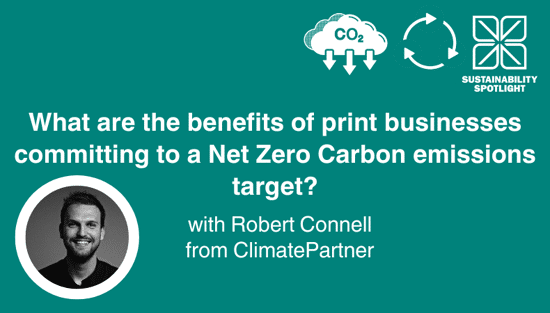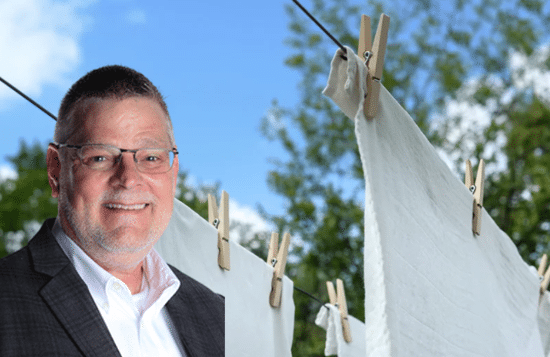How to start your journey in sustainability

Laurel Brunner shares some basic steps of what printers can do to begin their journey in sustainability. These steps focus on conserving resources and minimising waste.
The basics of what companies in the printing and publishing sectors should be doing to be more sustainable are really not that hard. They’re common sense in many ways, because they are about conserving resources and minimising waste. But they can be easy to overlook if the whole topic seems to overwhelm you, so we’ve been thinking it might be handy to give printing companies some hints to follow. The following ideas should be helpful if you want some quick sustainability wins. Clearly there are plenty of people out there willing to come in and give you the low down, but that’s likely to involve a fee. Why not try out some of these free suggestions instead? Let us know how you get on.
Take a long hard look at your prepress set up to work out what your error rates are. If you’ve got lots of reworking to do, it might be because your customers have no idea how to set up their PDFs. If you’ve not reviewed this for a while it might save you some time and energy to provide customers with updated guidance. Check out your colour management processes while you are at it. Waste on press can be controlled via setup controls and makeready efficiencies before data reaches plate or press.
Are your offices overheated or too cool? Consider cutting your energy emissions with a slight adjustment to the thermostat. You’ll never get this perfect for all employees, but it is worth a try. Encourage people to use natural light as much as possible and to turn off lights when leaving rooms. According to the United Nations buildings account for 21% of total greenhouse gas emissions. Improving energy efficiency by upgrading your kit might be less traumatic than you think, so it is worth a conversation with your equipment providers.
Single use plastics are banned in the European Union, but if you are in another geography consider doing the same for your patch no matter how small. Using nonplastic alternatives or even reusable materials wherever possible makes a huge difference to the amount of waste your business generates. In kitchens and canteens encourage your staff to minimise food waste wherever possible; smaller portions avoids excess waste and is probably good for peoples’ wastelines.
Set up recycling bins for paper, metal and glass and get a deal with local waste handlers for regular collections. They might even pay you for your waste, if it is clean enough. Your staff will have loads of ideas, so make it easy for them to share them. A suggestion box can work, but it’s more effective to make sustainability ideas a standing item on your management meetings. Make sure you summarise action items and put deadlines on them so that you can measure your progress over time.
Cover photo by Pixabay
Recent news

What are the benefits of print businesses committing to a Net Zero Carbon emissions target?
We speak to Robert Connell, Senior Commercial Sustainability Manager at ClimatePartner who who offer solutions along the net zero cycle to support business’s effort in corporate climate action. In this discussion we discuss the importance and the process and benefits of businesses committing to a Net Zero Carbon emissions target.

6 Sustainable Printing Practices Changing the Game in Textile and Apparel Decoration
The textile industry is shifting towards sustainability. Innovations like waterless and digital printing, eco-friendly inks, and recycled materials are reducing waste. AI and automation optimise production, while circular models promote reuse. Consumer demand for transparency drives this change, making sustainable practices essential for future-focused brands.

Sustainability in Production Print: Advancing Practices in Wide Format, Textiles, and Software
As sustainability continues to take centerstage across industries, the production print sector is making massive strides in integrating eco-conscious practices. From wide format to textile applications, with the growing reliance on advanced production software, the space is evolving to meet environmental goals as well as consumer demand for sustainable products.

Why must the print industry recognise software and material innovation
Laurel Brunner argues that the printing industry must recognise the value of both software and material innovation, and be willing to pay for it. Software, though intangible, drives efficiency and reduces carbon footprints. While materials science currently dominates, R&D costs are inherent in all advancements. Paying a premium ensures continued progress, benefiting the industry's evolution and sustainability.